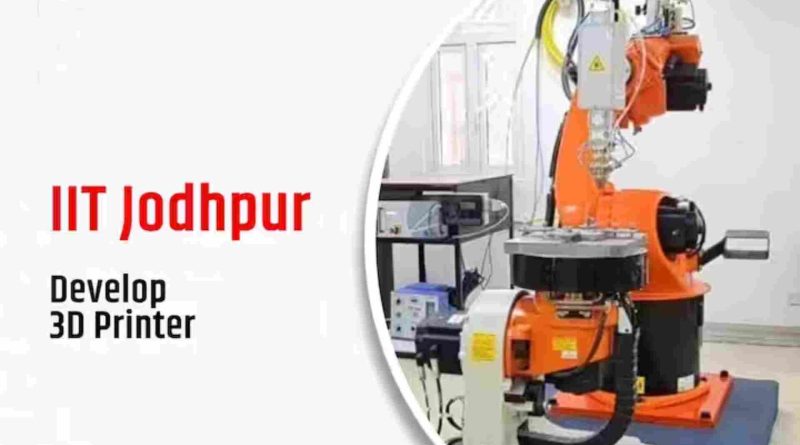Forging Tomorrow: The Rise of Indigenous Metal 3D Printing at IIT Jodhpur
In a groundbreaking stride, researchers at IIT Jodhpur have unveiled their innovation: an Indigenous Metal 3D Printer. Spearheaded by the Technology Development and Transfer (TDT) Division under the auspices of the Department of Science and Technology (DST), this pioneering endeavor marks a significant leap in technological advancement.
Harnessing the cutting-edge Direct Energy Deposition (DED) technology, the Metal 3D printer is a testament to indigenous ingenuity. With meticulous attention to detail, every component of the printer, save for the laser and robot systems, is conceived and crafted on Indian soil. The overarching aim of this initiative is to democratize access to Metal 3D printing by curbing costs and widening the spectrum of users, as articulated in a statement by IIT Jodhpur.
The stalwart team behind this feat comprises distinguished researchers from various disciplines at IIT Jodhpur: Dr. Ravi KR, Dr. V. Narayanan, Dr. Abir Bhattacharyya, Dr. Sumit Kalra, Dr. Rahul Chhibber, and Dr. Hardik Kothadia. Their collective expertise converges to drive innovation and propel the boundaries of technological prowess.
Speaking on the significance of this indigenous marvel, Dr. Ravi KR of the Department of Metallurgical and Materials Engineering at IIT Jodhpur remarked, “The modest triumph of this venture instills our team with renewed vigor for future endeavors. It underscores the unwavering faith bestowed upon our team and institution by funding bodies and industry partners, both present and prospective.”
Despite Metal 3D printing emerging on the scene several years post the advent of Polymer 3D printing, its growth trajectory pales in comparison, particularly in India. Citing factors such as exorbitant pricing and reliance on imported proprietary metal powders, an institute statement elucidates the subdued expansion of metal 3D printers.
The IIT Jodhpur printer, tailored for repairing and augmenting existing components, emerges as a beacon of versatility. Its applicability spans diverse sectors including Aerospace, Defence, Automotive, Oil and Gas, and General Engineering, underscoring its transformative potential.
Fueling this transformative journey is the unwavering support of the Technology Development and Transfer (TDT) Division, Department of Science and Technology (DST). Collaborative efforts extend beyond academia to include esteemed partners such as PSG College of Technology, PSG Industrial Institute, and VectraForm Engineering Solutions, collectively propelling the march towards innovation.
At its core, this machine embodies a commitment to self-sufficiency, printing 3D parts using domestically sourced metal powders. Noteworthy is India’s maiden foray into variable spot size laser optics, a testament to unwavering commitment to excellence without compromising on quality in laser cladding and additive manufacturing processes.

